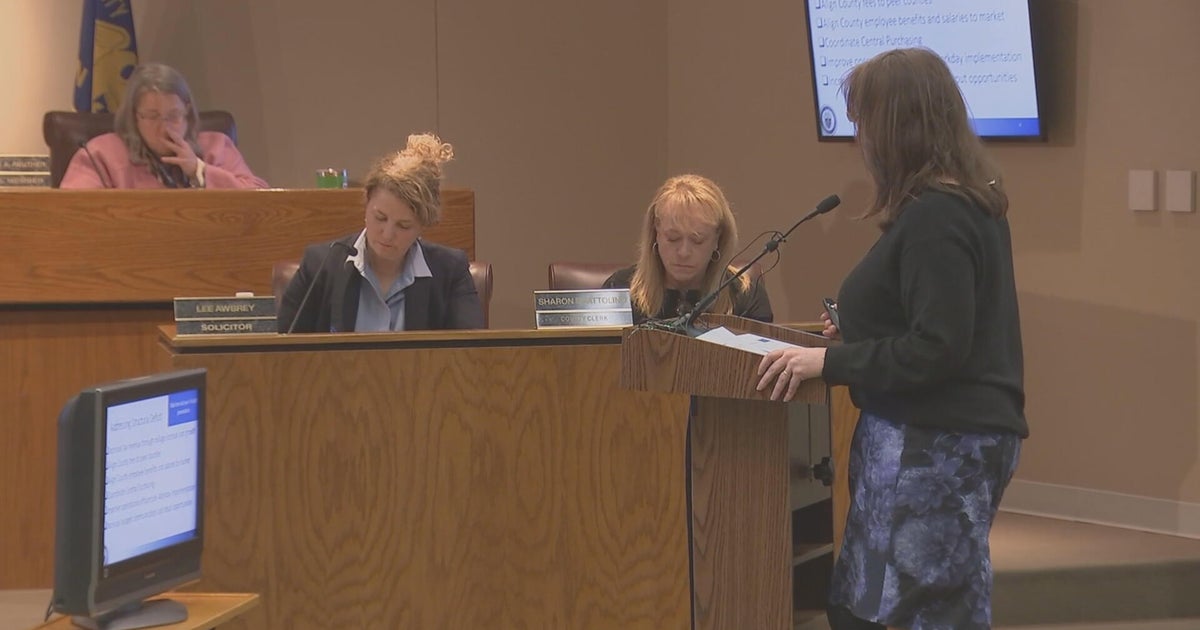Taxes 2022: Last-minute tax moves that can put money in your pocket
Tax Day is fast approaching, with Americans needing to either file a return by April 18 or ask for an extension. If you're among the millions who tend to wait until the eleventh hour to file, there's still time to take steps that can reduce what you owe or land a bigger refund.
About 91 million people have filed tax returns as of April 1, according to the most recent IRS statistics. In a typical year, the tax agency receives about 160 million tax filings, which means that almost 70 million Americans had yet to file their taxes in the last two weeks before the deadline. So far, the typical refund is $3,226 in 2022, the agency said earlier this month.
- Taxes 2022: Here's how to ask the IRS for a tax extension
- Taxes 2022: How to avoid an IRS audit
- Cryptocurrency buyers: Here's what to know for tax season
- What's my tax rate? Here are the income brackets for 2022
Among the strategies still open to taxpayers who have yet to file: Socking money away in either an Individual Retirement Account (IRA) or a Health Savings Account (HSA),Eric Bronnenkant, head of tax at Betterment, told CBS MoneyWatch. These strategies can help lower your taxable income while also offering longer-term advantages through increased retirement savings or the triple-tax benefits provided by an HSA.
"The IRA and HSA deadline is the tax filing deadline of April 18," Bronnenkant noted. "Once you have missed out on them, you can't get them back again."
Here are some last-minute tax moves that can put money in your pocket.
Invest in an IRA
Taxpayers can still invest up to $6,000 in an IRA for the 2021 tax year through April 18, according to the IRS. For people who are over 50, that amount is bumped up to $7,000 in order to help older workers save more for retirement.
Traditional IRAs help lower your tax burden because they can be deductible up to the contribution limit, which means your taxable income will be lowered by the amount you put in the IRA. At the same time, you'll be saving money for your golden years, a tax-preferred benefit that can have big returns over a career.
"Especially for new workforce employees, it may be tough to put money in, but that can pay off long term," Bronnenkant said.
However, there are some limits on this strategy. The deduction is fully available to people who aren't covered by a retirement plan at their workplace. If you have a workplace retirement plan, like a 401(k), the full deduction is capped according to income. For instance, a single filer who has a 401(k) can take the full deduction for an IRA contribution if they earn less than $66,000. (See the IRS' website for the guidelines.)
It's also important to note that Roth IRAs aren't deductible, since these work by investing after-tax income into the investment vehicles. At retirement, people can withdraw the money on a tax-free basis, which is why many tax professionals recommend these accounts to people who expect to be in a higher tax bracket when they retire.
Save some money in an HSA
The contribution deadline for the 2021 tax year for Health Savings Accounts is also April 18. For people who qualify for these vehicles, it can provide a powerful tax advantage.
HSAs are available for people with high-deductible health care plans, which the IRS considers to be any plan with a deductible of at least $1,400 for an individual or $2,800 for a family.
The IRS says that individuals can save up to $3,600 for the 2021 tax year, while families can sock away up to $7,200. The contributions are deductible, meaning that you can reduce your taxable income by the amount you put into the HSA. But there are other benefits as well. The money grows tax-free, and money that is withdrawn to pay for medical expenses can be made on a tax-free basis.
"It's triple tax free," Bronnenkant said.
Stimulus checks: Did you miss any?
The IRS is also urging people to make sure they didn't miss out on any federal stimulus money from 2021. The government's third stimulus check was issued last year, as well as six months of Child Tax Credit payments. Eligible people who may have missed out on some of the money can claim it on their tax returns.
Up to $1.6 billion in stimulus money may still be up for grabs, according to a recent report from the Treasury Department's Inspector General for Tax Administration. People who may have missed out include families who had a new child in 2021. That's because the IRS relied on the previous year's tax return to determine eligibility, which means the tax agency wouldn't have known about children born or adopted in 2021.
To claim the stimulus cash on your tax return, look for line 30 on the Form 1040 for 2021, labeled Recovery Rebate Credit. But make sure you are calculating this correctly by checking your records — if you claim money you aren't owed, your tax return will get flagged for review, adding to processing time and a potential delay in getting your refund.
Likewise, if you missed out on the advance Child Tax Credit payments, you can fill out Form 8812 and file with your 1040. Again, if you claim money that you aren't owed, your tax return could get delayed.
Do you have unclaimed refunds from 2018?
Lastly, the IRS recently said it has unclaimed tax refunds of almost $1.5 billion, and the tax agency is urging people to act before April 18 to claim any money that's due to them.
The unclaimed refunds are linked to an estimated 1.5 million taxpayers who didn't file a tax return in 2018, the agency said. Because there's a three-year period to claim the refunds, the window for getting the money will shut on April 18. (People in Maine and Massachusetts have until April 19, 2022, to claim the refunds because of the states' Patriots' Day holidays.)
Getting the money will take some extra work, since the IRS requires people to file a paper tax return for 2018 to get their unclaimed refunds. The agency says to check the final page of the current Form 1040 to find out where to mail the return. That's organized by state, so taxpayers in Alabama, Georgia and several other Southern states should send their returns to an IRS office in Kansas City, Missouri.
The median value of the unclaimed tax refunds is $813, according to the IRS.







